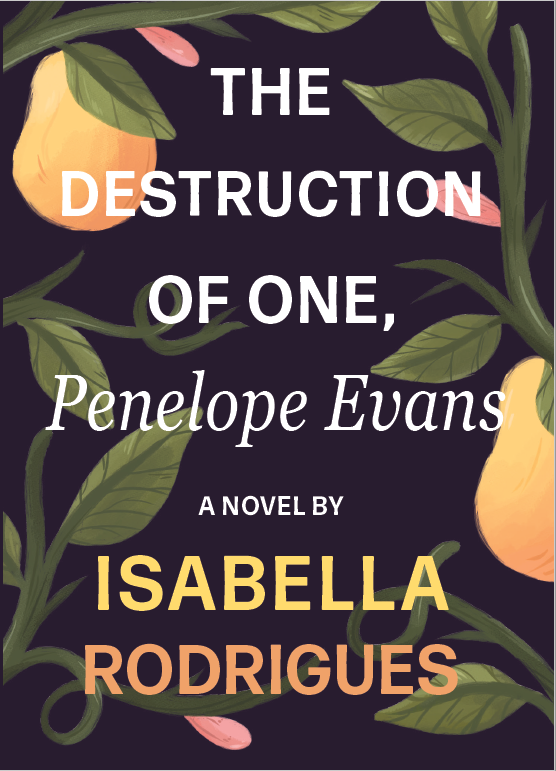Stretching and Submitting
Isabella Rodrigues // Wilde Press Author
“You have to stretch before you run a marathon.”
That’s what I kept telling myself while writing The Destruction of One, Penelope Evans while marooned at my grandparent’s house over the summer. I had heard people mention before how writing a book—or anything long form—will take everything out of you. I never listened; I had written before and it was fine. I thought I was different. But writing this manuscript everyday felt like I ran miles and then took a math test. I was physically exhausted, and my brain no longer registered human interaction, only the sound of typing. I told myself I had to finish this floating dreamscape that has been in my head for three years, so I forced myself to sit in my grandparents’ sunroom and write. I had written a good bulk of it over the years, so it only took about two weeks to finally complete. I was annoyed that it was taking so long, getting the words out. But even the greatest athletes have to set themselves back when they have been out of training for a while. Practice. Even writing down the most mundane thoughts helps you to “stretch.”
An even worse thought during my writer’s retreat was, “Where will this go?” I wanted to write a novella, I knew that. I also knew that getting a long form story like that published was tricky. I decided to be reasonable and realize that Penguin Random House was not going to offer me a debut author hardcover run. And I didn’t want Destruction to sit in my laptop, existing only in my head. I had written it wanting to share it, which isn’t always the case with writing. Sometimes you write things to you, as little gifts, and those stories usually stay in journals and notes. Destruction wasn’t one of those stories.

I had worked for Pub Club for one semester before I left for Kasteel Well. I was a substantive editor, and I enjoyed reading and helping shape the manuscripts. I knew they published 80-page manuscripts from Emerson students. That was the key I had been looking for to fit the lock. I submitted in the fall, made it to the final four, and got rejected. I didn’t let that deter me—Pub Club gets so many wonderful manuscripts. I resubmitted for the spring, confident that my work was something to be proud of while also getting friendly with rejection as a new writer. That time stuck, and Destruction was going to see the light of day. Everyone at Pub Club has been so friendly and capable of their jobs; it makes me certain that they will all be incredible professionals when they graduate. If you have an interest in writing, reading, editing or really just making connections within Emerson, I strongly encourage you to get involved with them. If you are interested in submitting for Pub Club, this is my advice: take it slow, remember your worth, and make sure it’s something you are proud of. As artists, I think we are often taught to be a little embarrassed of our projects and passions, and I am definitely guilty of that. But get used to talking about it, taking compliments, taking critiques, and feeling comfortable.
Before you do that though, remember to stretch.
